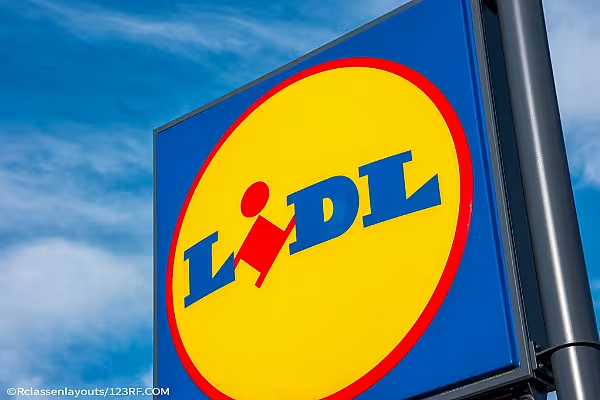Lidl continues to lead the market in Hungary, new data has shown, following a solid performance in 2022.
The annual retail rankings from industry publication Trade Magazin show that the German discounter saw its turnover grow to €3.14 billion last year, up from €2.49 billion in 2021, ending the year with 197 stores (six more than the previous year).
SPAR ranked second, with gross sales revenue of €2.29 billion (€2.14 billion in 2021) from 623 stores (+9), followed by British retailer Tesco, with revenue of €2.33 billion (€2.06 billion in 2021) and 197 stores (-1).
In fact, there was no change among the top three retail chains, with all generating double-digit sales growth, although their growth was below the inflation rate.
Other Retail Chains
With a network comprising 3,838 stores (-101), Coop ranked fourth with gross sales revenue of €1.87 billion, up from €1.83 billion the previous year.
Local supermarket chain CBA increased its turnover to €1.58 billion, from €1.54 billion the previous year, ending 2022 with 1,987 stores (+19).
Discounter Aldi jumped from ninth to sixth place as a result of a 30% sales growth, to €1.26 billion, achieved from its network of 163 stores (+10).
Penny Market moved one spot up in the rankings to secure seventh position, seeing its revenue rise from €1.06 billion in 2021 to €1.22 billion last year, with the REWE-owned retailer operating a network of 228 stores (+1). It was followed by Real, with revenue of €1.16 billion (€1.17 billion) and 1,093 stores (-58).
France’s Auchan dropped from sixth to the ninth place, seeing its turnover decline to €1.14 billion from €1.26 billion the previous year.
German drugstore chain dm-drogerie markt closed the top 10 with gross sales revenue of €385.4 million (€369.9 million in 2021) and 263 stores.
Food Inflation
Food inflation in Hungary rose from 10% at the beginning of 2022 to 45% at the end of the year, while the value of grocery purchases by households was up 16.8%.
Due to the rising prices, the main factor influencing shopper purchasing habits was price, leading to growth in the discounters' market share.
The market share of private labels climbed 2% to 30%, according to NIQ data.
Elsewhere, just under a third (32%) Hungarian households said that they purchased grocery products online, a channel that saw over 30% growth last year.














